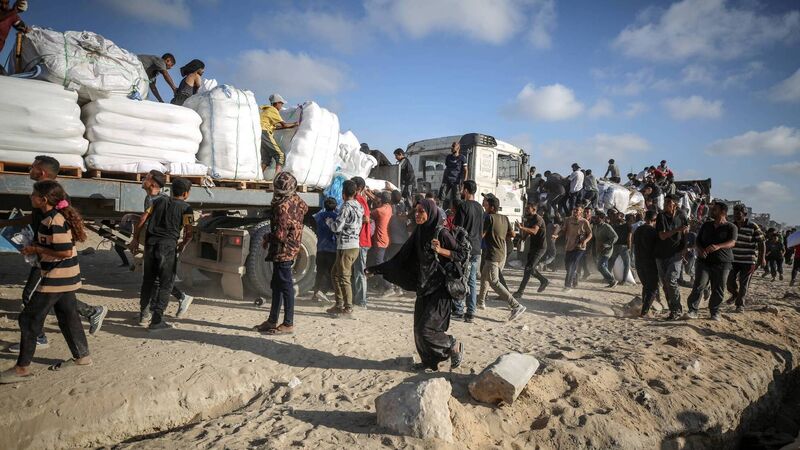Saoi O'Connor: As the UN talks shop, no food or water enters Gaza

Palestinians receive aid supplies after aid trucks sent by the United Nations under Israeli attacks enter the Zakim border crossing on Wednesday. Millions of Gazans continue to starve, and within the halls of the United Nations we are not allowed to condemn this. Photo: Ali Jadallah/Anadolu via Getty Images
There is a wire mesh fence between me and the fire exit, another between me and the Rhine. The World Conference Center used by the UN for the intersessional climate negotiations each June is superior to the majority of venues in which the Conference of the Parties (or COP) has been hosted, for this reason; where I write from, you can see the river.
It’s often been speculated that the outcomes of climate negotiations would be better if said negotiations took place in rooms with windows, instead of dark little prefabricated boxes that might just as well be shipping containers for the amount of light that gets in.













